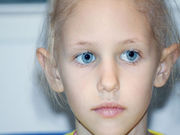Findings show superiority for SIOP in pediatric patients with planned cisplatin-containing treatment
THURSDAY, Dec. 15, 2016 (HealthDay News) — The Society for Industrial and Organizational Psychology Ototoxicity Scale (SIOP) seems to be best for classifying ototoxicity in cisplatin-treated pediatric patients, according to a study published online Dec. 12 in the Journal of Clinical Oncology.
Kristin R. Knight, M.D., from the Oregon Health and Science University in Portland, and colleagues compared ototoxicity classification systems in participants aged 1 to 30 years with planned cisplatin-containing treatment. The testing audiologist and two central review audiologists assessed and graded audiologic results using the American Speech-Language-Hearing Association Ototoxicity Criteria (ASHA), Common Terminology Criteria for Adverse Events, version 3.0 (CTCAE), and Brock Ototoxicity Grades (Brock). The SIOP was also used by one central reviewer.
The researchers found that the prevalence of any degree of ototoxicity varied from 40 to 56 percent, and severe ototoxicity varied from 7 to 22 percent at the end of treatment. SIOP detected significantly more ototoxicity than CTCAE (P = 0.004); Brock criteria identified significantly fewer patients with any or severe ototoxicity (P < 0.001). Ototoxicity was detected earlier with SIOP than other scales. For ASHA and Brock, agreement between central reviewers and the institutional audiologist was almost perfect, while the poorest agreement was seen for CTCAE.
“The SIOP scale may be superior to ASHA, Brock, and CTCAE scales for classifying ototoxicity in pediatric patients who were treated with cisplatin,” the authors write. “Future studies should evaluate inter-rater reliability of the SIOP scale.”
Several authors disclosed financial ties to the pharmaceutical industry.
Full Text (subscription or payment may be required)
Copyright © 2016 HealthDay. All rights reserved.








